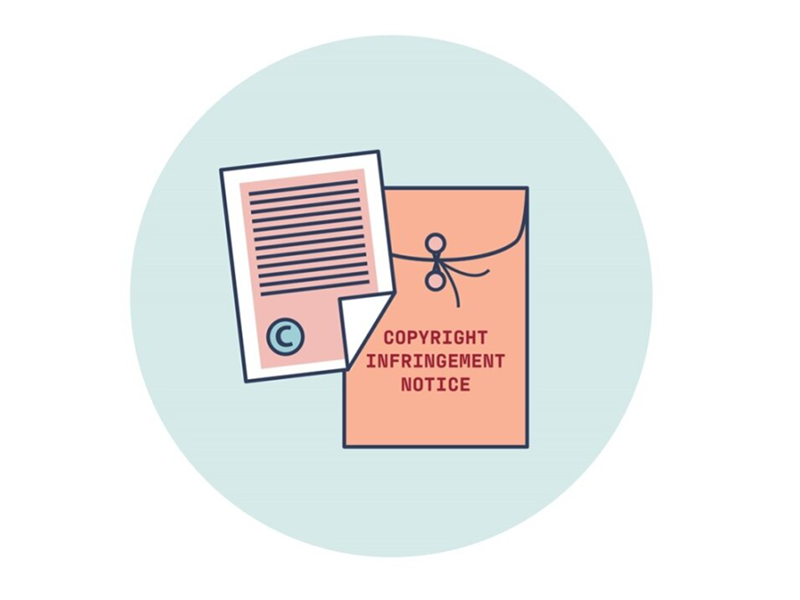Texas A&M fought a court battle regarding their right to release an author's unpublished book chapter on their website. The University of Houston was sued after using a photographer's image without attribution or compensation. Cases like these highlight the continued importance of understanding copyright infringement for students, faculty and staff in higher education. Using materials in an educational context does not mean students, faculty and staff can forget about copyright.
It is a violation of the university's Code of Computing Practices for any user to commit copyright infringement using university resources, including campus or residence hall networks. Violation of the Code of Computing Practices is also a violation of the Code of Student Life and may result in disciplinary sanctions as well as the suspension or revocation of the user's access to university resources or networks (Code of Computing Practices, Sections III.E.2).
As part of the Higher Education Opportunity Act's institutional requirements for combating unauthorized distribution of copyrighted material by network users, the university is required to provide information pertaining to copyright infringement.
What is copyright infringement?
Copyright infringement is the act of exercising any rights granted to the copyright owner without permission or legal authority (Title 17, United States Code, Section 106 of the Copyright Act). Copyright owners have exclusive rights of reproduction, adaptation, publication, performance and display. Infringement includes the reproduction or distribution of a copyrighted work in the following ways:
-
While downloading a file using file sharing applications.
Using the copyrighted content for any purpose may put the user in violation of policy as the content of the file is distributed. Doing anything with copyrighted content on a peer-to-peer network potentially puts the user in violation of this policy. -
Downloading or uploading parts of a copyrighted work without authority.
Downloading or uploading substantial parts of a copyrighted work without authority may constitute as an infringement. -
Downloading and distributing copyrighted material
Users engaged in the unauthorized distribution of copyrighted material are subject to fines and other penalties. For example, a person who lawfully acquires an authorized copy of a motion picture could be an infringer if he or she engages in the business of renting it to others for an unauthorized public performance.
Copyright infringement can also result in civil and criminal penalties. Anyone found liable for civil copyright infringement can be ordered to pay damages ranging from $750 to $30,000 per work infringed. For "willful" infringement, a court may award up to $150,000 per work infringed. A court can also assess costs and attorneys' fees (Title 17, United States Code, Sections 504, 505). Further, willful infringement may also result in criminal penalties, including imprisonment of up to 10 years and fines up to $250,000 per offense.
There are limited exceptions to copyright infringement that might not require receiving permission from the copyright owner, such as the doctrine of fair use. Further, federal law permits in-class showing of a movie directly related to the teaching content of the course by an instructor in "face-to-face teaching activities," as long as the copy being shown is a lawful copy.
To learn more about how the university combats unauthorized distribution of copyrighted material, see its.uark.edu/policies/copyright. The library also has created a copyright and fair use guide: uark.libguides.com/CopyrightandFairUse. The Higher Education Opportunity Act requires all colleges and universities to offer legal alternatives to unauthorized downloading.
Contacts
Ele Powell, assistant director of administrative communications
Division of Finance and Administration
479-718-1918,
